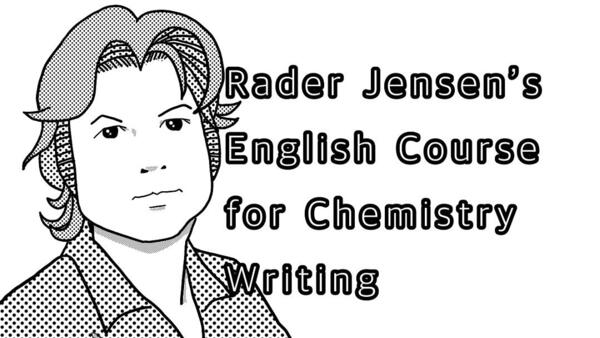CSJ Journals
[化学論文のための英語講座] 第51回:Pop Quiz 6 分詞形容詞1
(English version is here.)
形容詞 Part 2を踏まえて実践的に使ってみましょう。以下の文章で、括弧内の適切な単語を選んでください。
1. To remove systematic error (originated/originating) from the calculation method, a scaling factor was introduced.
2. The (obtained/obtaining) residue was then recrystallized from ethanol.
3. The (resulted/resulting) mixture was then stirred at -78 °C for 1 hour.
4. Lowering the reaction temperature to 20 °C (resulted in/resulting in) improved diastereoselectivity.
5. The temperature was lowered to 20 °C, (resulted in/resulting in) improved diastereoselectivity.
[解説と答]
1. この文では「systematic error」は継続することが暗示されていますので「originating」が正解です。代わりに「that originated」も使えます。
2. 「residue」は単一時点で得たことが暗示されていますので「obtained」が正解です。この例は慣用的ですが「obtain」はだいたい過去分詞として使用されます。
3. 「mixture」は継続することが暗示されていますので「resulting」は正解です。この例も慣用的で「result」はだいたい現在分詞として使用されます。
4. この文では「result」は分詞ではなく、普通の動詞ですので、過去形である「resulted in」が正解です。
5. この文でも「result」は動詞ですが、従属節に表れていますので分詞である「resulting in」が正解です。
[備考]
例文3では「The resultant mixture」も正しいです。
次回は冠詞です。
Pop Quiz 6 Participial Adjectives 1
Taking into account Adjectives Part 2, let us try practical application. In the following sentences, select the appropriate word from within the parenthesis.
1. To remove systematic error (originated/originating) from the calculation method, a scaling factor was introduced.
2. The (obtained/obtaining) residue was then recrystallized from ethanol.
3. The (resulted/resulting) mixture was then stirred at -78 °C for 1 hour.
4. Lowering the reaction temperature to 20 °C (resulted in/resulting in) improved diastereoselectivity.
5. The temperature was lowered to 20 °C, (resulted in/resulting in) improved diastereoselectivity.
Explanation and answers:
1. In this sentence, continuity of systematic error is implied and thus, originating is correct. Alternatively, that originated can also be used.
2. Here residue being acquired at a single point in time is implied and thus, obtained is correct. Although this example is idiomatic, obtain is generally used as a past participle.
3. Here the continuity of mixture is implied and thus, resulting is correct. Although this example is also idiomatic, result is generally used as a present participle.
4. In this sentence result is not a participle, but rather an ordinary verb and thus the past tense resulted in is correct.
5. Although in this sentence as well result is a verb, because it appears in a subordinate clause, the correct answer is resulting in, which is a participle.
Supplement:
In example 3, the resultant mixture is also correct.
At next time, we will discuss about Article.
